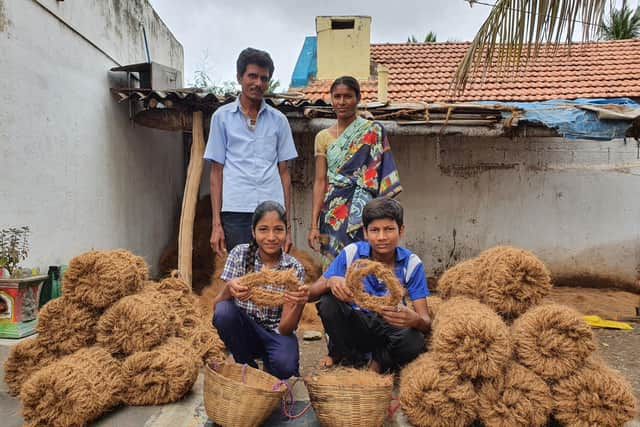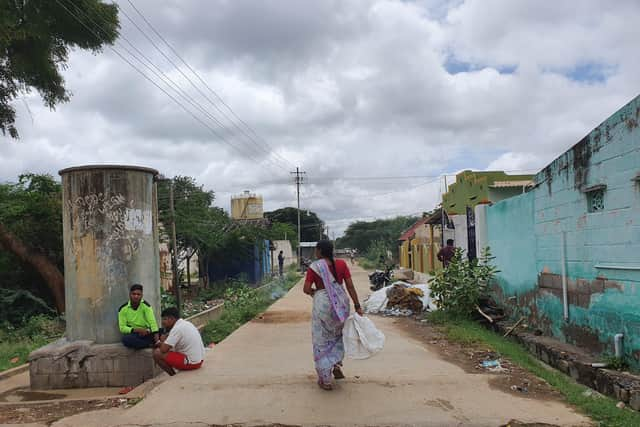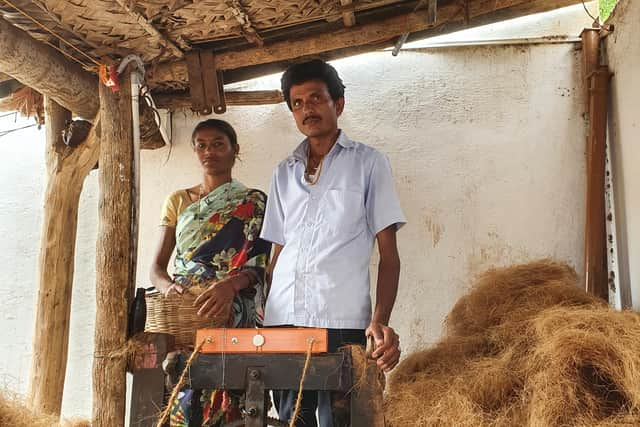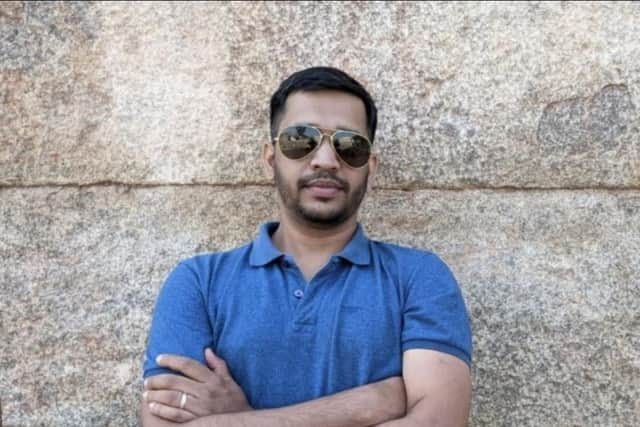COP26: How solar power is helping families in rural India
This region of India is replete with history and references to Chitradurga can even be found in the Hindu epic Mahabharata.
This ancient city is not letting the future leave it behind though. Alongside its rich history, the city is also home to many new-age, Decentralised Renewable Energy (DRE) systems that are helping power the lives and livelihoods of rural entrepreneurs.
L Kumar, 42, is one such entrepreneur.


Advertisement
Hide AdAdvertisement
Hide AdLiving in the village of Patrehalli, just outside the city, Kumar makes his living from spinning coir yarns into rope. He gets paid by the number of bundles he and his family spin in the small machine in their courtyard every day.
With the help of the Bengaluru-based, Solar Light Pvt. Ltd (Selco India), Kumar has made his coir-yarn spinning machine run on solar energy.
Where one person would have to constantly spin a wheel behind the machine earlier, the solar-powered small motor on top of the machine does this job.


The same work that requires a minimum of three individuals at least ten hours of hard labour is now done by two persons in a little more than half the time.
Solar power has not only freed up more time for Kumar and his family, it has also increased their earnings.
Across India, many rural entrepreneurs are using DRE solutions, mostly in the form of solar energy, to power their business. The little 75-watt solar panel, the 60mah battery and the custom-designed motor has brought the advantages of solar energy directly to Kumar’s family.
Kumar says: “With the solar-powered machine, we are able to make more bundles on any given day. My son and daughter are able to take breaks to attend their online classes on the phone – all schools have been closed in India because of the Covid-19 pandemic – and I don’t have to spin the wheel day and night to keep the machine running.”


The electricity supply in India, especially in rural parts of the country, is highly erratic. Power generation is also among the biggest contributors to India’s carbon emissions.
Advertisement
Hide AdAdvertisement
Hide AdCompanies like Selco have specialised in providing decentralised solar-powered solutions for more than 25 years now.
The company has more than 50 branches spread across India and helps set up anything from a solar-powered house light in a remote mountain region to large petrol pumps on busy highways, that is also fully powered by solar energy.
As Harish Hande, Magsaysay award winner, and one of the founders of Selco India says: “Now, the fuel source is decentralised, the sun is decentralised, so why not use it to design a system in a similar manner? It is a question of a change in the thought process, changing the belief that the grid is king and more awareness.”


This change is not only contributing to India’s Green Energy transitions, but is also helping the country fight climate change.
Most importantly, people like Kumar, who would have had to rely on unreliable electricity-supply, can now take their destinies into their own hands, powered by nothing short of the sun itself.
- Sibi Arasu is an award-winning independent journalist based in Bengaluru, India. He has worked as a journalist for more than decade, covering issues related to the environment and climate change in India. Sibi is a fellow with the Climate Change Media Partnership and will be attending COP26. This article is part of The Scotsman and Earth Journalism Network partnership – set up by global non-profit organisation Internews.
Comments
Want to join the conversation? Please or to comment on this article.
